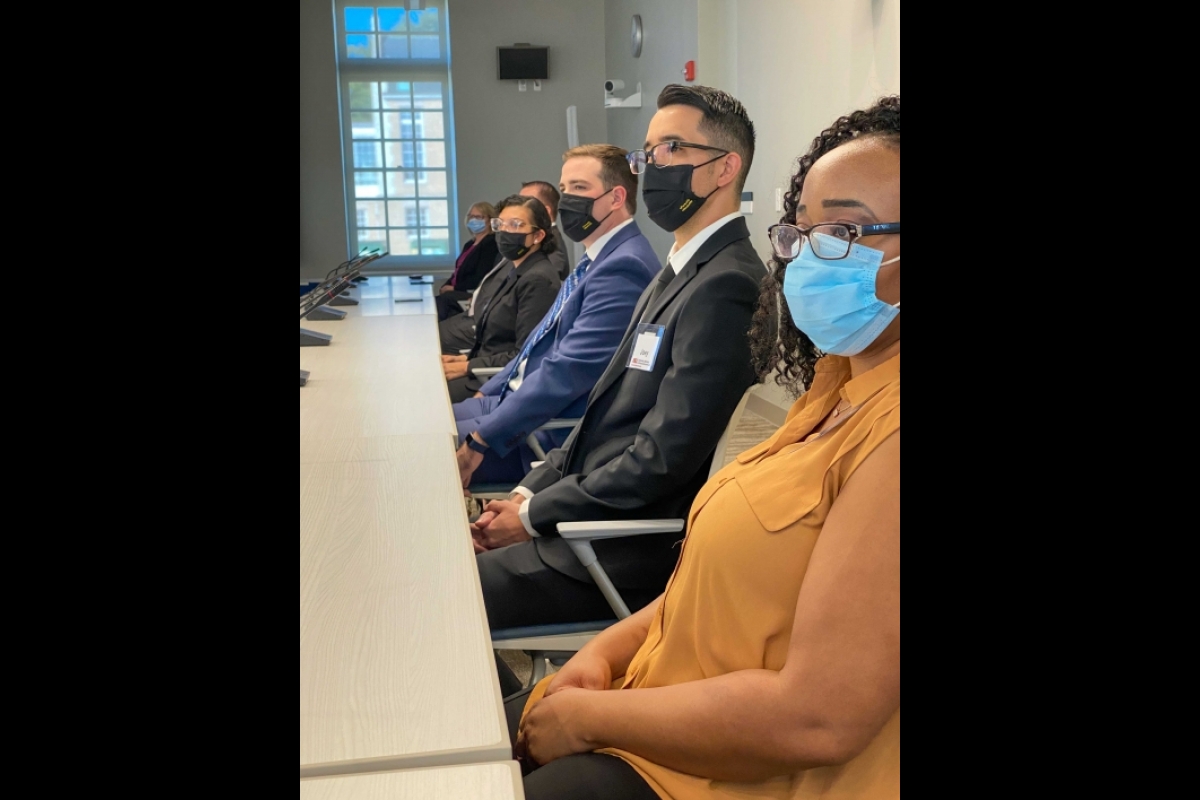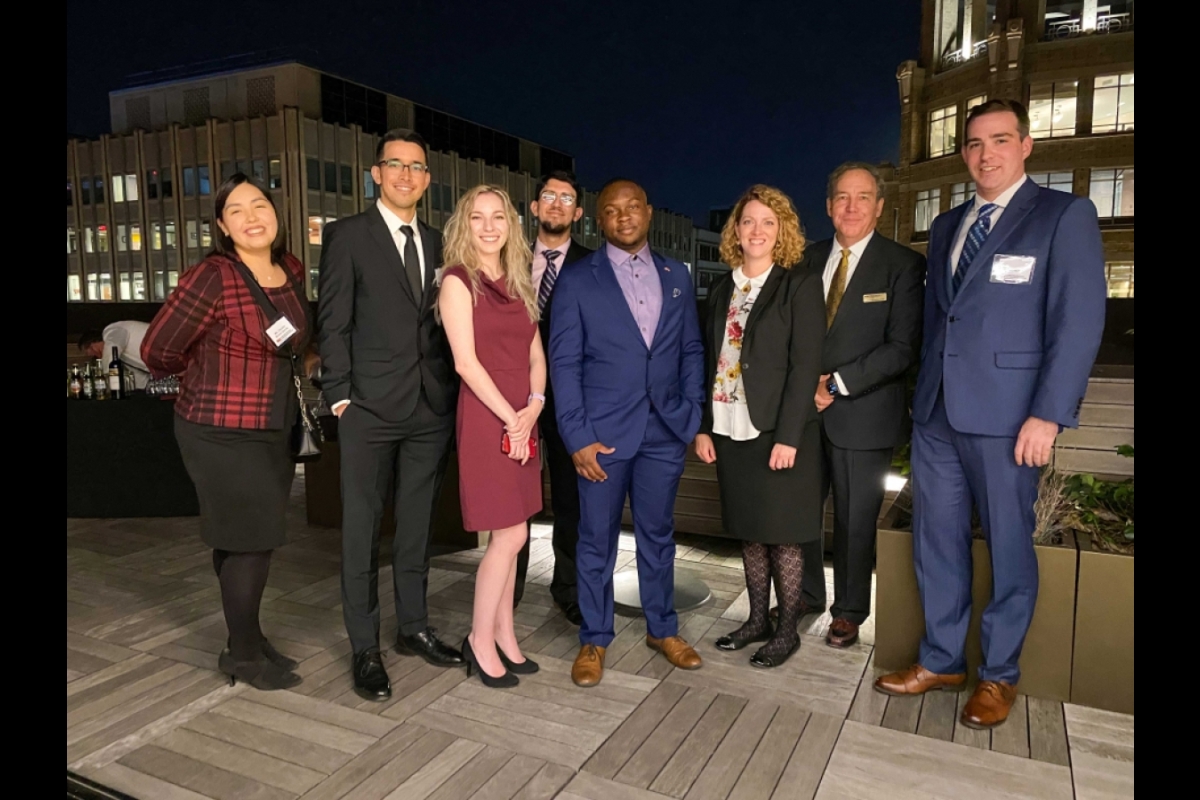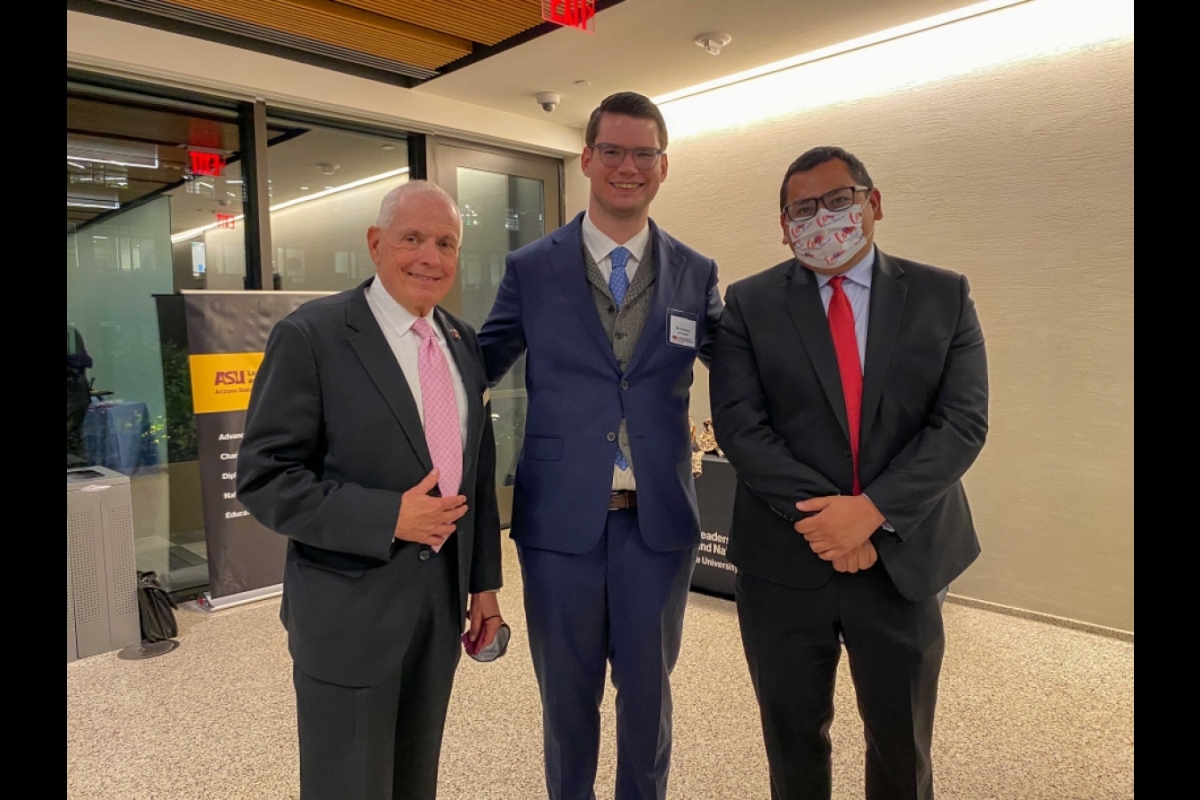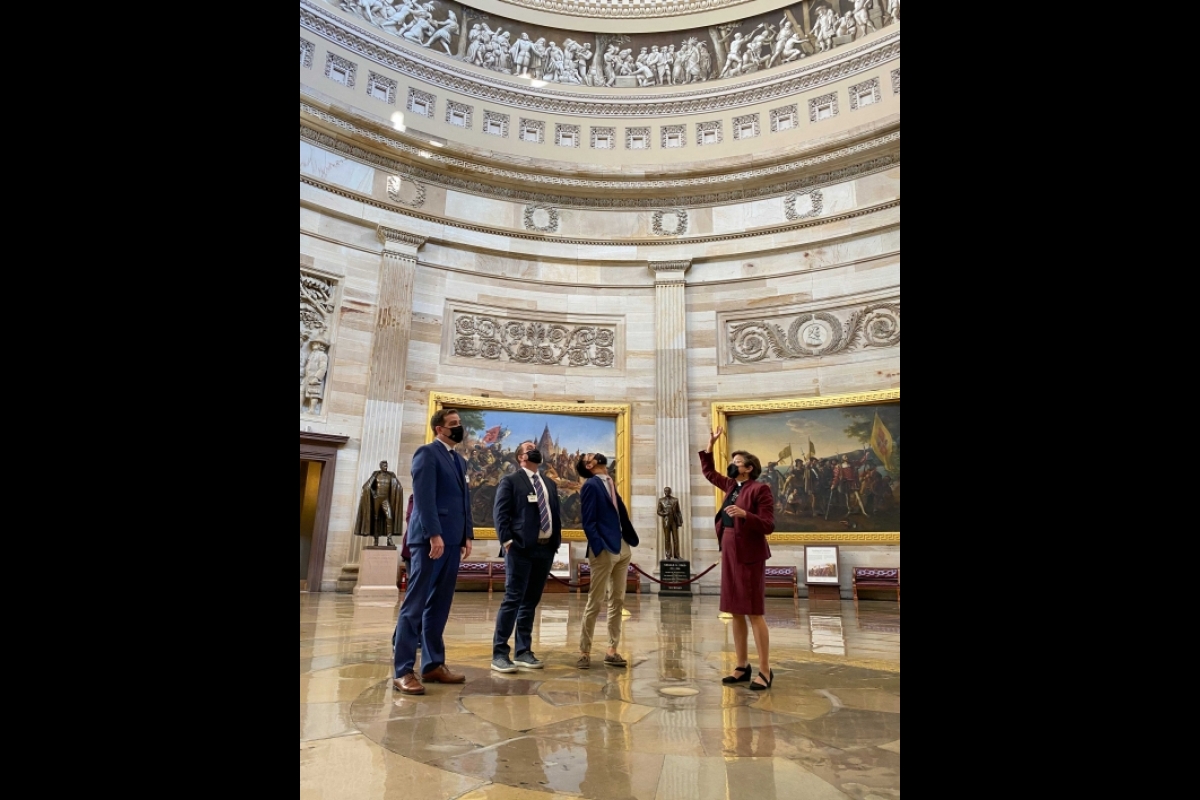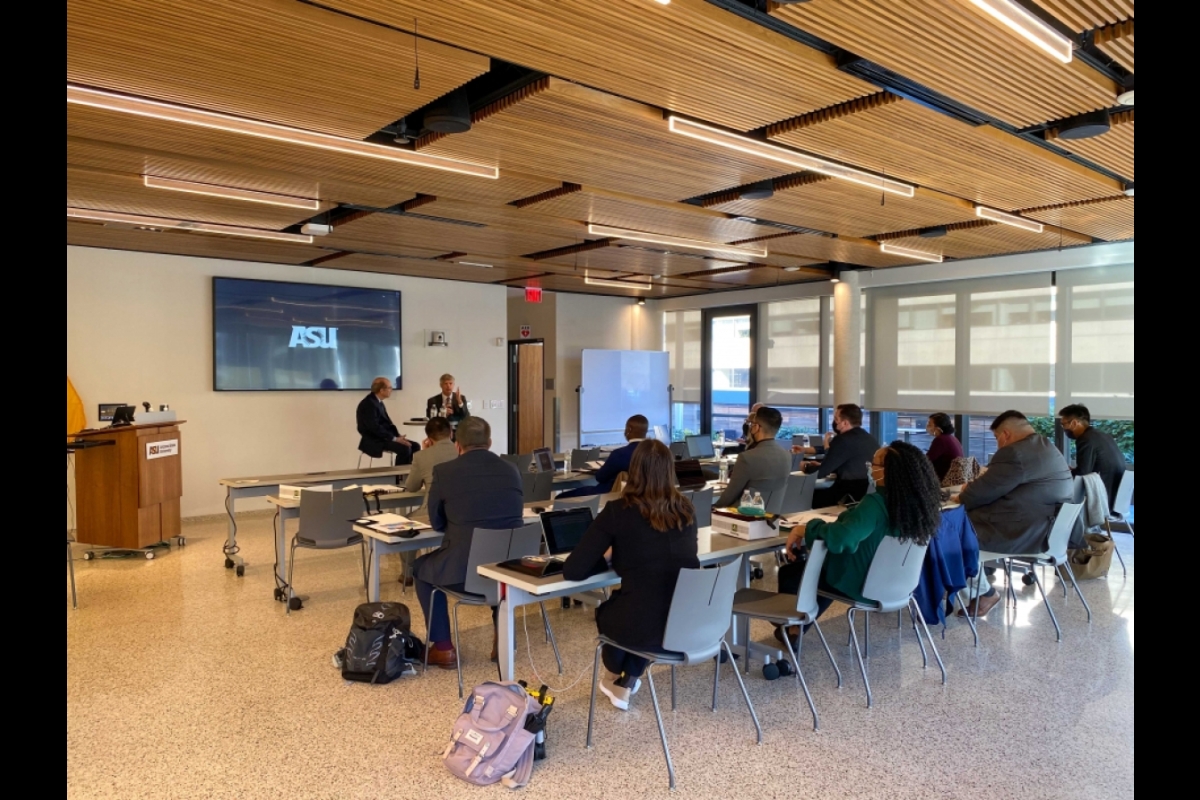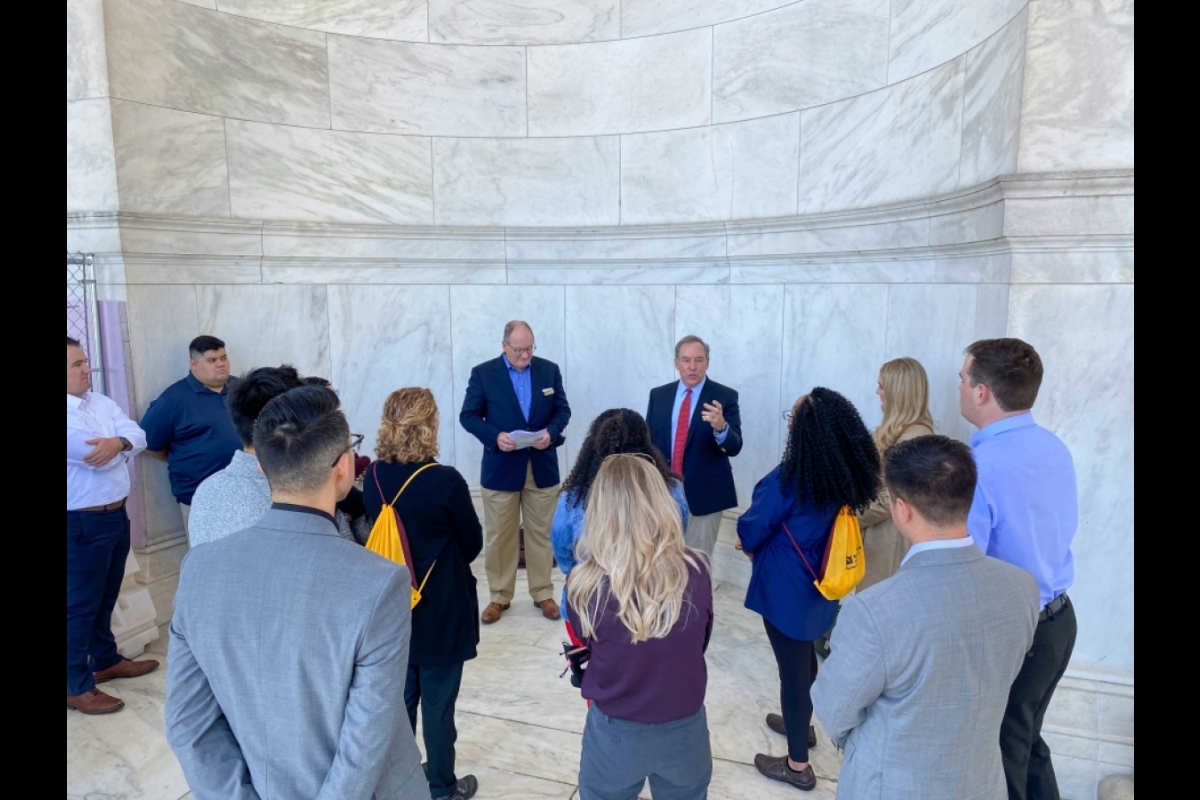ASU Online master's students experience a full week in Washington, DC
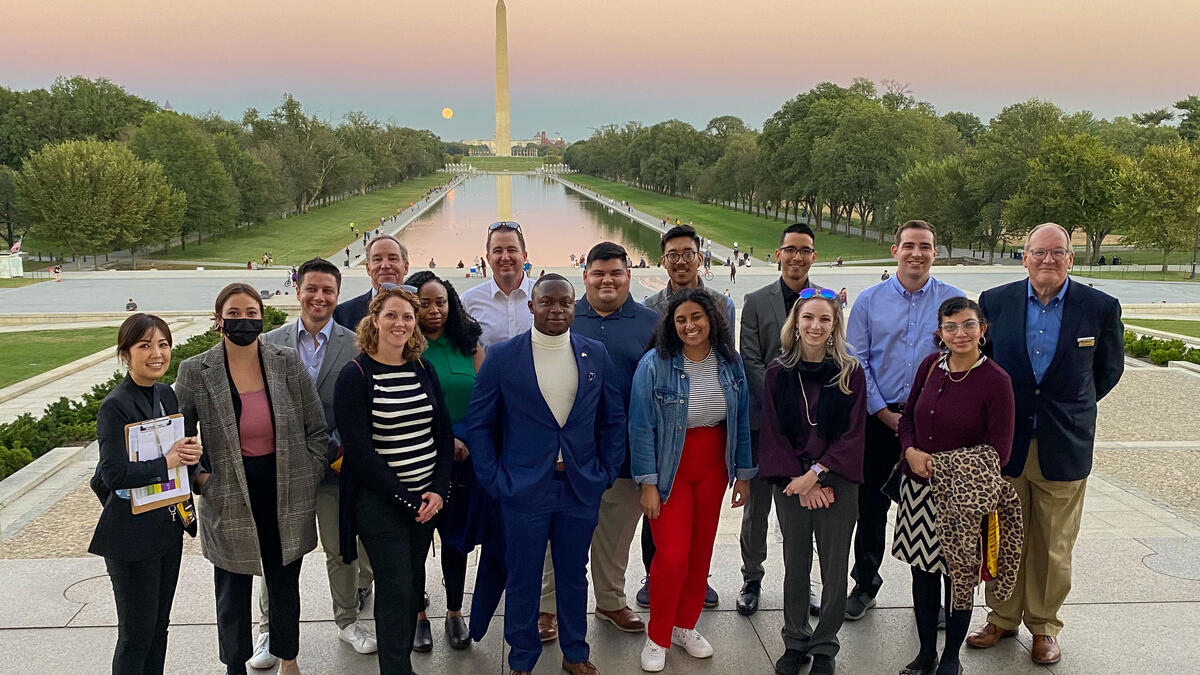
The inaugural class of ASU Online Master of Arts in International Affairs and Leadership program students during a week of activities in Washington, D.C.
On Oct. 18–22, the inaugural class of students from the Online Master of Arts in International Affairs and Leadership program at Arizona State University traveled to Washington, D.C., for a week’s worth of immersive training and activities.
Students of the ASU Online master’s program, offered by the School of Politics and Global Studies, have the option of two separate intensive in-person experiences in Washington, D.C., over the course of the program, allowing them direct access to the professionals and institutions involved in U.S. foreign affairs.
“Washington Week provides our students the fantastic opportunity to network with top foreign policymakers in Washington, D.C.,” said School of Politics and Global Studies Director and Professor Magda Hinojosa. “But the Washington Week experience does more than that, too: It gives our students a chance to meet their exceptional colleagues and faculty members in person for an experience they will never forget.”
To start the week, students were introduced to program instructors and leaders of the Leadership, Diplomacy and National Security (LDNS) Lab, including former United States Ambassador Edward O’Donnell, Ambassador-in-Residence Michael Polt and retired Lt. Gen. Benjamin Freakley.
“This unique in-person experience as part of an ASU Online program introduces firsthand the international and foreign policy environment of Washington, D.C., to the (international affairs and leadership master's) students,” explained O’Donnell, program director and professor of practice at ASU. “They meet top foreign policy professionals and learn the most current status of the leading global issues that will confront them as they become future leaders in the global arena.”
Each day, the students participated in discussions covering topics in the areas of diplomacy, character-driven leadership, ethics, foreign affairs, intelligence, national security and economics, which included simulations and case studies. These exercises were led by multiple former ambassadorsAmbassador Shaun Donnelly, Ambassador Marc Grossman, Ambassador William Heidt, Ambassador David Johnson, Ambassador Richard Kauzlarich, Ambassador Rod Moore, Ambassador Catherine Novelli, Ambassador William B. Taylor and Ambassador Kurt Volker., military general officersRetired Rear Adm. Margaret G. Kibben, retired Maj. Gen. Spider Marks and Capt. Katie Richardson. and experts in the fieldPeter Bergen, co-director for the Center on the Future of War; Michelle Bekkering, director of national engagement at U.S. Global Leadership Coalition; Deputy Assistant Secretary William Deere; and Gil Klinger, chief executive officer with Guardian Space Technology Solutions..
To reinforce the curriculum, the cohort visited various historic sites in Washington, D.C., such as the U.S. Institute of Peace, the U.S. Holocaust Museum, the U.S. Capitol Building, the Diplomacy Center for the U.S. State Department and multiple monuments.
“We were able to expose our students to the key concepts of character-driven leadership through hands-on exercises, visits to key locations in the nation’s capital for experiential learning and application, as well as meetings and discussions with senior leaders,” said Freakley.
ASU alumni, many of whom who participated in the Policy Design Studio while at ASU, also met with students during an evening reception. Students were able to connect with these alumni, mostly from the School of Politics and Global Studies, who work in Washington, D.C., and with the U.S. State Department and other U.S. government agencies and Congress.
“The networking and collaboration I was able to achieve was more than I expected,” said Simon Anthony Lee, a current international affairs and leadership master's student who also graduated from ASU with a bachelor's degree in political science and an master's degree in global security. “So much that I’m still texting people I met throughout the week, bouncing ideas off of each other for future projects.”
Throughout the completion of their degree, students will continue to receive mentoring, career counseling and instruction from program faculty and outside speakers with real-world experience developing foreign policy and programs. At the end of their time in the master's program, students will travel back to Washington, D.C., for another week of activities.
“Retired Ambassador O’Donnell, retired Ambassador Polt and retired Lt. Gen. Freakley have done well to ensure a sense of community among this cohort during a virtual program,” said Lee. “The variety of speakers that volunteered their time was essential for us to see the many fields and career paths of foreign relations. I’m excited to come back in due time and reap the benefits of the education gained with this degree.”
More Law, journalism and politics
Can elections results be counted quickly yet reliably?
Election results that are released as quickly as the public demands but are reliable enough to earn wide acceptance may not…
Spring break trip to Hawaiʻi provides insight into Indigenous law
A group of Arizona State University law students spent a week in Hawaiʻi for spring break. And while they did take in some of the…

LA journalists and officials gather to connect and salute fire coverage
Recognition of Los Angeles-area media coverage of the region’s January wildfires was the primary message as hundreds gathered at…


